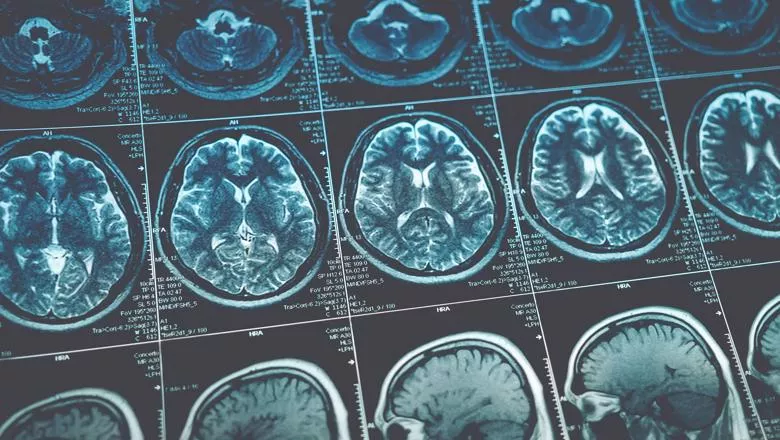Specifically, abnormal scans can be reported in 5 days rather than 9 days in one large hospital and 14 days rather than 28 days in another large hospital.
Dr Thomas Booth
16 December 2021
Researchers receive £1M Medical Research Council grant for automatic brain abnormality detection tool
The work follows earlier findings that it is possible to automate brain MRI image labelling where the researchers found that more than 100,000 exams can be labelled in less than 30 minutes

Researchers from the School of Biomedical Engineering & Imaging Sciences have been awarded a £1 million Medical Research Council Development Pathway Funding Scheme (MRC DPFS) to develop a clinically validated decision making deep-learning tool to automatically identify all abnormalities on brain MRI scans.
The tool would enable immediate automated triage of abnormalities matching that of a consultant neuroradiologist.
This is important as 330,000 patients may wait more than 30 days for their MRI reports in the UK. The number is forecast to increase, due to more demand for MRI than the availability of radiologists to report these scans.
UK-specific workforce shortages in radiology are negatively impacting patient care by delaying diagnosis; a similar picture is seen globally.
The researchers say they can detect more than 90 distinct abnormalities when testing their algorithm while selecting the scans that are normal.
The project, jointly investigated by Dr Tom Booth, Senior Lecturer in Neuroimaging at the School of Biomedical Engineering & Imaging Sciences and Consultant Diagnostic and Interventional Neuroradiologist at King’s College Hospital and Professor Sebastien Ourselin, Head of School of Biomedical Engineering & Imaging Sciences, has been building up since its first Health Research Authority/Research Ethics Committee approval in 2018.
The work follows earlier findings that it is possible to automate brain MRI image labelling where the researchers found that more than 100,000 exams can be labelled in less than 30 minutes.
This was an important step to overcome a bottleneck to label scans at scale: scans labelled at scale allowed researchers to build a hugely promising brain MRI abnormality detection triage tool.
Without a large number of labelled scans, a deep learning tool could not have learnt the categories of normal or abnormal with such accuracy.
Dr Booth said simulations show this triage tool would triage effectively for outpatient scans at two London hospitals and reduce the time to report abnormal scans.
The researchers will now look to improve performance accuracy and ensure generalizability, where the algorithm works well with new data in new hospitals, across the UK.
To achieve generalizability the researchers are ingesting data across the UK in order to finesse the model and ensure it works with high accuracy in different hospitals, with different scan manufacturers and imaging sequences.
The research is a strong first step towards automating the triage process.
“Immediate triage of a brain MRI into normal or abnormal allows early intervention to improve short and long-term clinical outcomes,” Dr Booth said.
Detecting illnesses earlier in the patient pathway would result in lower costs for the healthcare system given that less specialised medicine, and fewer hours of treatment, are needed for patient recovery.
Dr Thomas Booth


